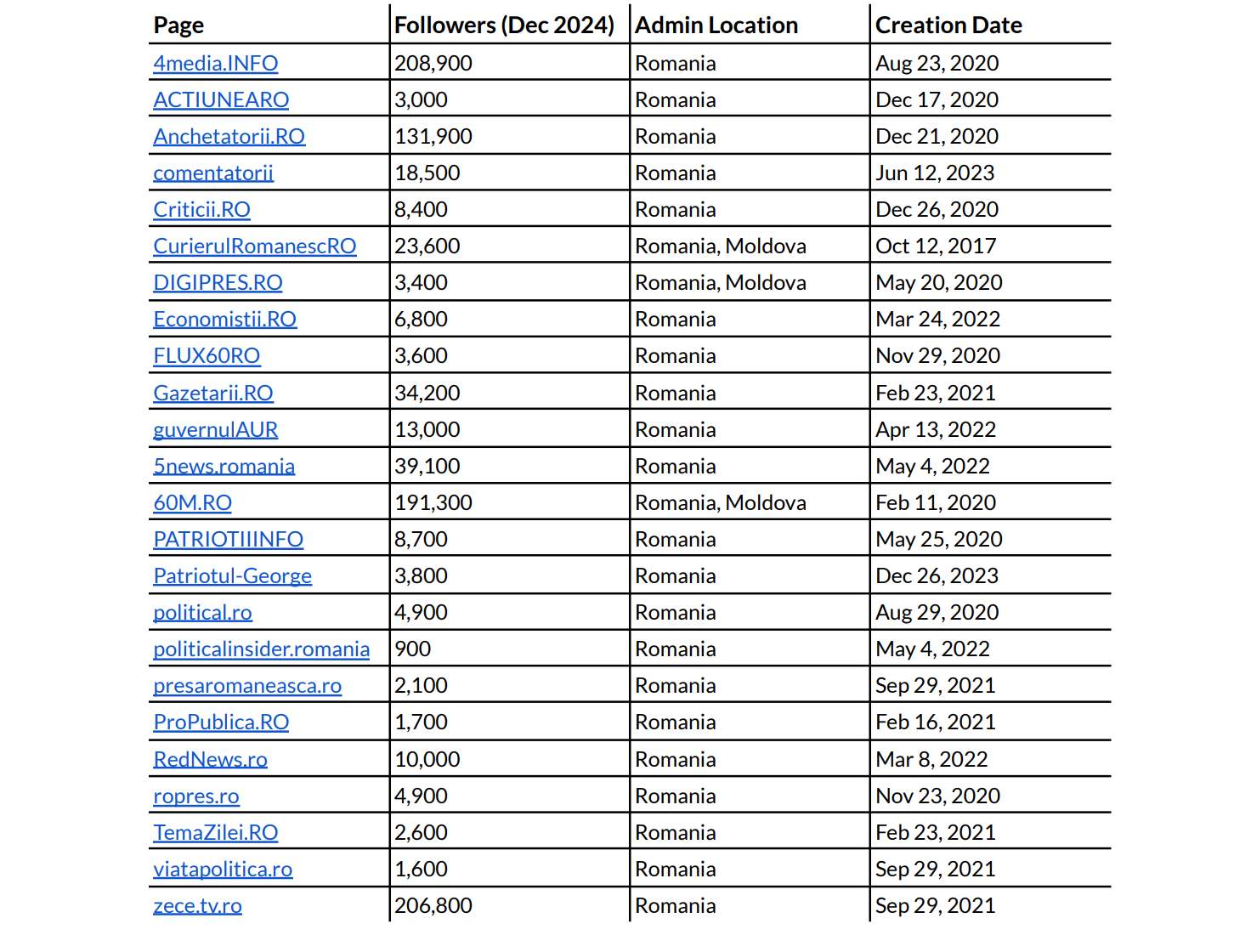A thorough investigation published on December 9, 2024, by Check First in collaboration with Reset Tech and EU DisinfoLab, and lastly with significant contributions from independent journalists Luiza Vasiliu and Victor Ilie, has revealed real concerns about digital platform influence during Romania’s presidential election.
Their research note, “Ads, Influence, and Democracy: Meta’s Role in Romania’s 2024 Presidential Election,” provides a much needed insight into how social media platforms are shaping public mindsets, reflected on the voting outcomes.
The investigation found 24 Facebook pages that spent a significant amount on political advertising. These pages pretended to be independent news outlets and reached over 148 million viewers with 3,640 political advertisements. It was also discovered that DGI Multimedia Design SRL was behind all of them.
Systemic Oversight Failures
Despite clear evidence of policy violations, the platform took no effective action to halt campaign activities in the months leading up to the election. As stated previously, the research team attributed 3,640 ads on Meta’s platform to the campaign, yet on December 3, Meta officially stated it had found no evidence of significant election interference or misinformation on its platforms during the Romanian Presidential election.
Source: Meta didn’t notice major disinformation in Romanian election, says Nick Clegg.
Campaign Scale and Coordination
Expanding on earlier findings by Romanian media Context.ro from June 2024, the research is revealing high-budget advertising campaigns promoting far-right or ultra-nationalists candidates on Facebook and Instagram.
The network operated through 24 Facebook pages with a total audience exceeding 935,000 users, spending between €139,858 and €224,083 since August 2024. These pages, while presenting themselves as independent news and information sites, coordinated their messaging to support the political agenda of the Alliance for Uniting Romanians (AUR) and their candidate George Simion, while also promoting ultra-nationalist candidate Călin Georgescu.

Source: Ads, Influence, and Democracy: Meta’s Role in Romania’s 2024 Presidential Election
Multiple Policy Violations
The campaign violated several of Meta’s core advertising policies, including transparency requirements for political advertiser identity, rules against coordination and inauthentic behavior, restrictions on sensational content in ads, and prohibitions on attacking individuals based on protected characteristics.
Cross-Platform Coordination
Perhaps most concerning was the evidence of coordinated activity across multiple platforms. The investigation found that the same network operating on Meta’s platforms extended its influence through TikTok and a network of websites publishing unverified claims. This cross-platform approach allowed the campaign to maximize its reach while making detection and enforcement more challenging.
Opinions
As Romania prepares for new elections, these findings show how fragile the democratic system can be against full scale hybrid attacks from both cyberattacks, to social engineering and extending to cross-platform coordination.
Democratic countries need to evaluate and look back at their own election processes, because they might find things that will surprise them.
Such interference is nowhere near how media is portraying ‘Romania’s is a testing ground for social media manipulation’. These attacks only perfected in time, and interferences were found in Moldova’s elections, Polish, Slovakia, Baltic states to only name a few Eu countries. Researchers discovered that social media manipulation influenced the UK’s elections and Brexit vote. Sources: [1] [2] [3] [4]









Comments are closed.